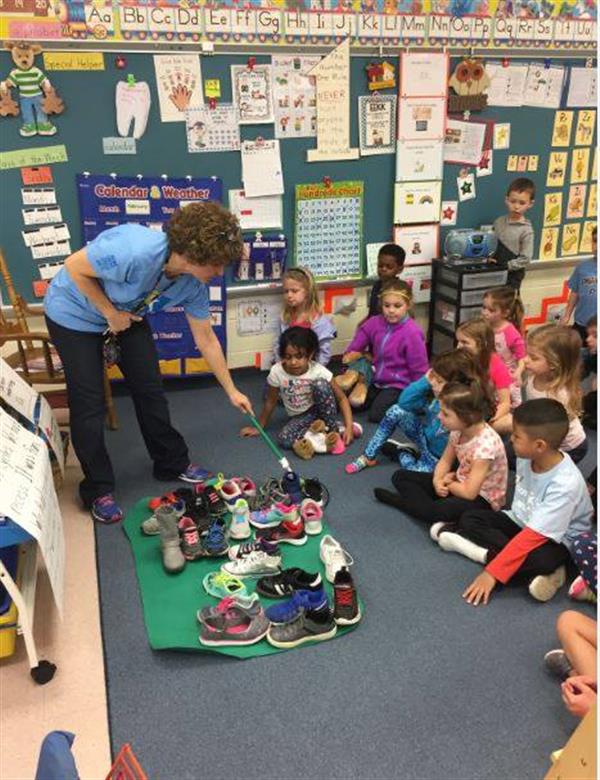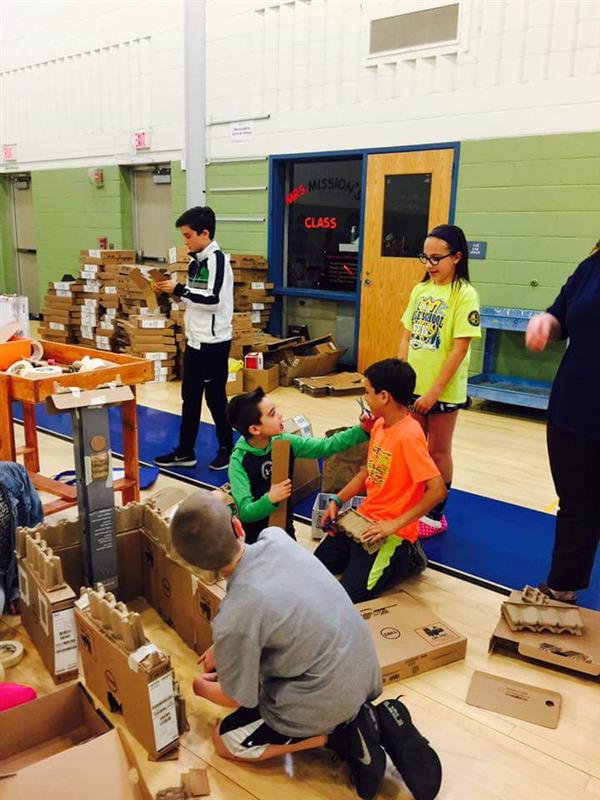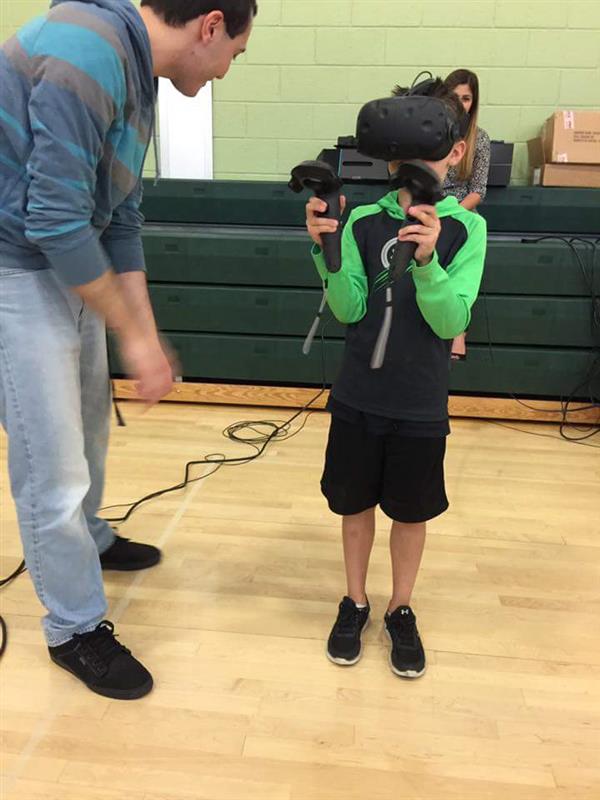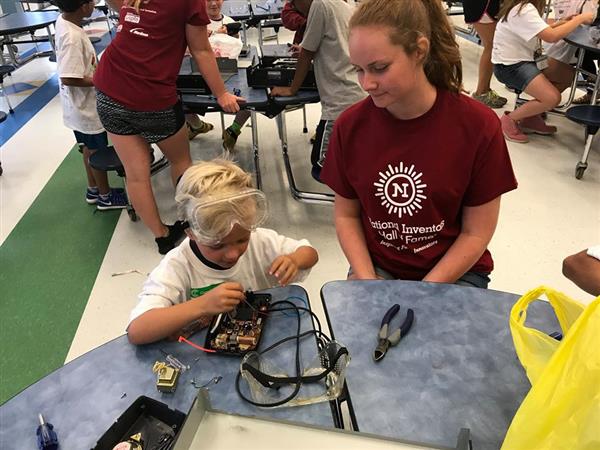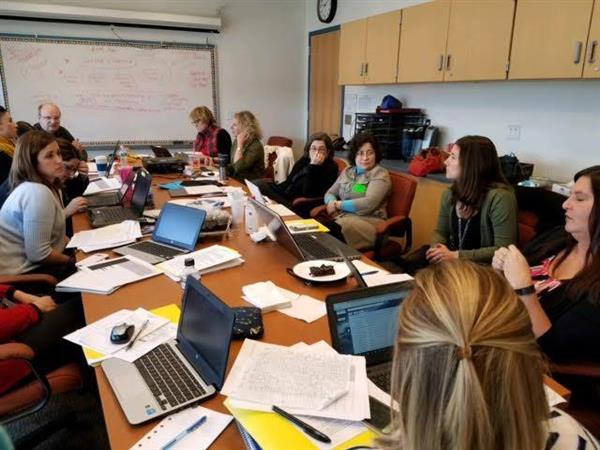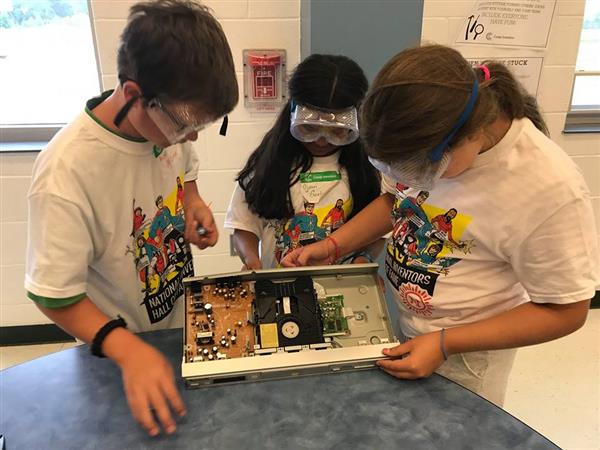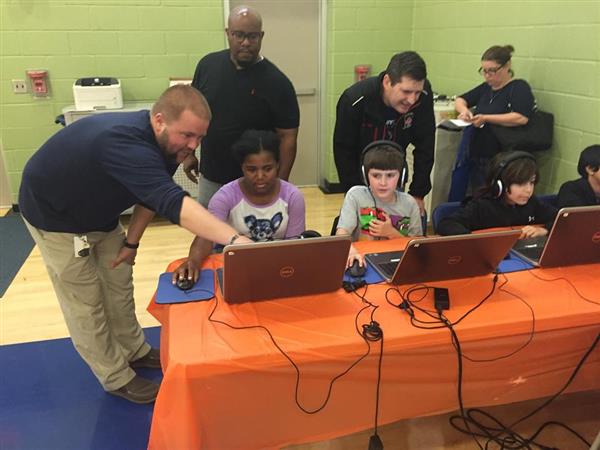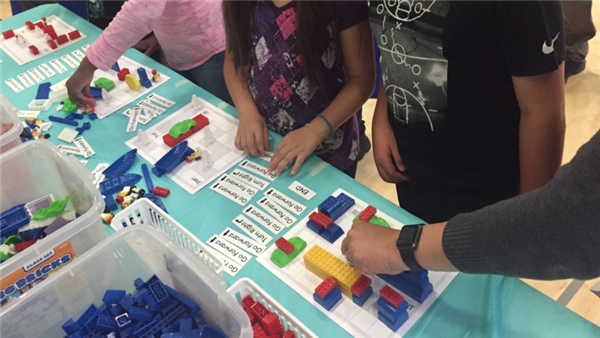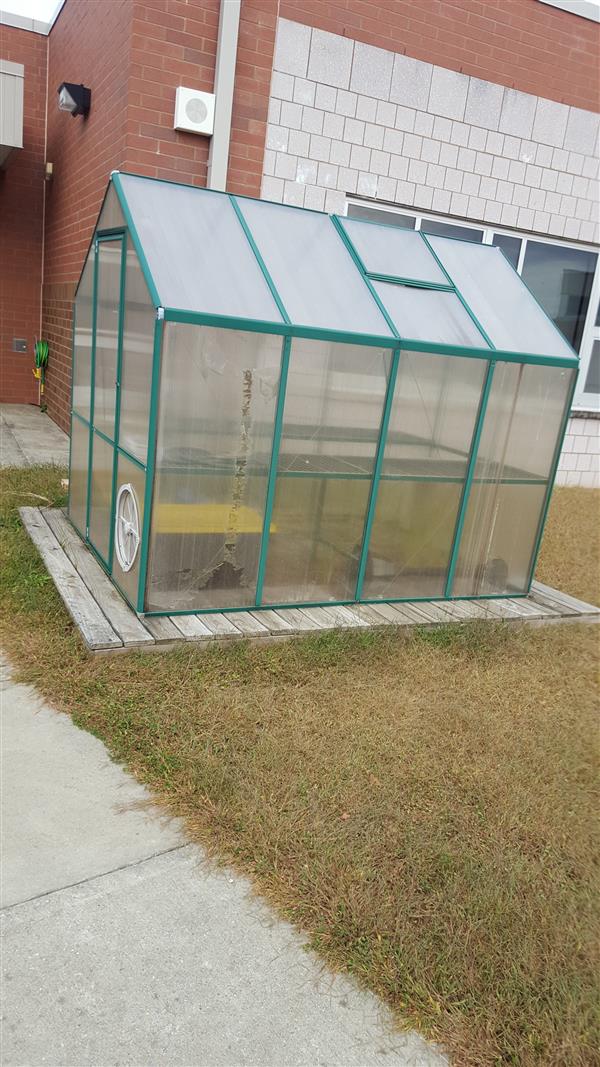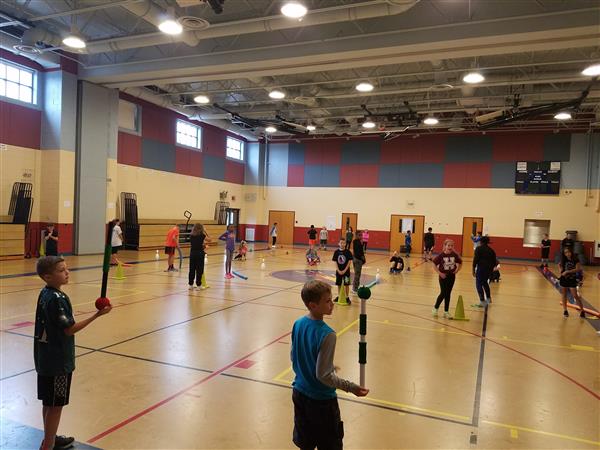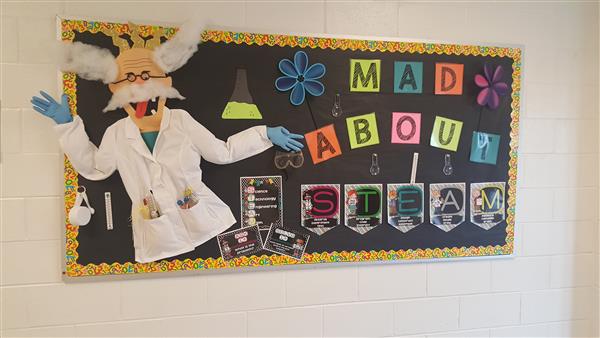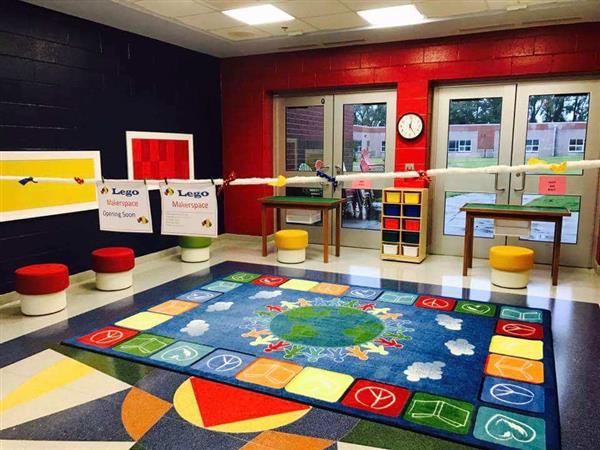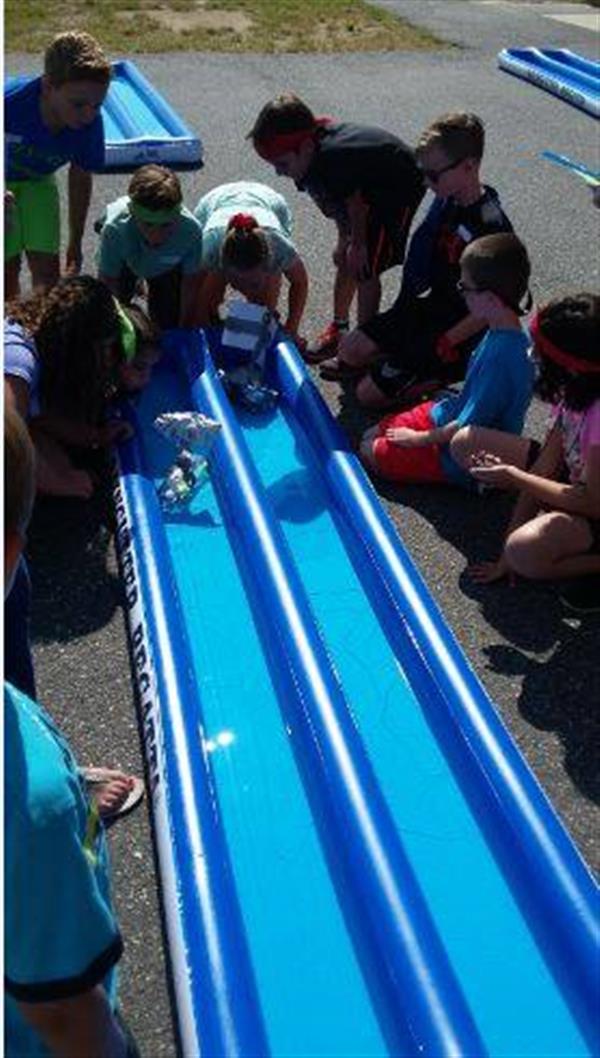- NJASA
- Curriculum Corner Nov 2017


-
The Evolution of Ideas Into Practice
In 2015, the Swedesboro-Woolwich School District (SWSD) began investigating ways to integrate STEAM coursework and expand enrichment opportunities for all students. Unfortunately, like many NJ School Districts, SWSD deals with school funding challenges so additional staff was not an option. Not only are finances a challenge, but so is time. Where and how do teachers find the time to add one more thing?
As a first-year Superintendent, thinking through this process was exceptionally challenging; however, for the Swedesboro-Woolwich Board of Education and administrative staff, this goal was non-negotiable. To begin, we needed to expand our knowledge base and explore some flexible scheduling options. So teachers, technology staff, and administrators began to visit other schools, attend PD, read research/articles, and participate in conferences - like the NJASA sponsored Techspo Conference. We didn’t step into new learning, we leaped.
After many team discussions, in the spring of 2016, The Margaret Clifford School, (a PK – K School) took the first big step outside of their comfort zone. Led by the creativity and dedication of the teaching staff, this school introduced kindergarteners to what is now known as “Comet” Cycles. Based on a 6-day teaching cycle, students participated in either intensive intervention services or students participated in one of 3 enrichment cycles: Solar Systems, STEAM, and Dinosaurs for 5 consecutive days of the 6-day cycle. On the 6th day, all students came together to participate in an assigned enrichment cycle. Teachers planned for a group learning experience so that everyone could participate. (No intervention classes were offered on the 6th day.) When examining this building’s needs, embracing both enrichment and intervention in one common RTI block was one way to approach this process. It was also decided that in kindergarten, late January/early February would be the best time to begin offering enrichment Comet Cycles. Watching five-year-olds excited about meeting/working with new teachers and effortlessly changing classes was an awesome experience!
During this same time, the District partnered with representatives from Rowan University to discuss Enrichment, Gifted and Talented, and STEAM programming, best practices, and possible offerings. Learning from professors in various departments: Mathematics, STEAM, Interdisciplinary Studies, and Counseling, the District’s newly formed STEAM Committee began to challenge their own thinking and discuss current practices. Ultimately, enrichment offerings were developed around a common theme – Grades K–2: Creativity and Exploration and Gr. 3–6: Ecology. Each course focuses on what has been termed the “soft skills:” collaboration, creativity, perseverance, adaptability, problem-solving, critical thinking, etc.
The four buildings now offer varied age-appropriate courses and modified their 6-day schedule to meet their individual student/building needs.
Example: Gr. 3 – 5 - Charles Harker School Schedule (October start date):
Days 1, 2, 3: All Students Receive Enrichment Cycles/Cohorts during the first period of the day.
Days 4, 5, 6: Identified students receive intervention services, participate in G&T classes, or focus on academic acceleration through adaptive computerized software, literature, projects, etc. The ultimate goal is to transform days 4, 5, and 6 to follow a “genius hour” structure for students not receiving intensive intervention instruction or G & T services. (This will become the next step in our journey.)
One Required District Cycle/Cohort:
In grades 1 - 6, all students participate in our Character Education “Comet” Cycle/Cohort. (Character education is offered at a different time for our kindergarten students.) The grade 1 - 6 “Comet” cycle/cohort curriculum was developed by one of the District’s art teachers who just completed 3 years of research on the impact of the arts and student expression on character education and anti-bullying programming. Students then are able to participate in at least 2 additional “Comet” Cycles/Cohorts.
Examples of Additional “Comet” Cycle/Cohort Courses:
Journey Through Ecology, Survival of the Fittest, Ecology of Cultures, Environmental Builders, Environmental Authors, Robots Run the World, Community Adventurers, etc.
At the conclusion of each cycle (approx. 6-7 weeks), student data is analyzed, new RTI intervention groups are identified, and students are assigned to their next enrichment “Comet” Cycle/Cohort.
The best part of this three-year journey is the involvement of the staff and witnessing the evolution of ideas into practice. Staff have embraced these practices and integrated them into other areas. Grants have been written to purchase tools such as Arduino Kits to teach circuitry. Bee-Bots, Scratch Programming, and Finch Robots are used as tools to teach coding in age-appropriate ways in all grades. In September 2017, teachers organized the District’s first student team to participate in the South Jersey Lego League. Two sixth grade teachers are currently in the process of introducing an after-school club called “Bootstrap” (http://www.bootstrapworld.org) which will offer students the opportunity to create video games, develop code, and explore algebraic concepts through real world applications.
Over the past 3 years, staff and students have built a pond, established a television station, and are now in the process of restoring a greenhouse. It’s not just our programs that are evolving, our building spaces are being modernized, too. This past summer staff created their first makerspace area and student relaxation station. These areas were created through donations, and the District was even fortunate to win 5,000 brand new Legos through staff and parent participation in an online contest.
In an effort to reach as many students as possible, the District now uses summertime for enrichment learning opportunities, too. Teachers organize and/or teach STEAM based summer camps. Camp Cranium and Camp Invention are now offered to students not only in our district but also to students in the surrounding area.
During the school year, staff have organized a Family Career Day, K–6 Family Coding Nights and have written grants to organize Family STEAM Nights. The K–2 STEAM Night partners with our regional high school students enrolled in the STEM Academy and the Gr. 3–6 STEAM Night partners with outside organizations like Rowan University’s Fossil Park, Rowan University’s Virtual Reality Lab, and a local farming business that showcases their hydroponics growing system. These are just some of the ways that staff have worked diligently to create learning experiences that motivate and capture student interest and intrigue.
We know that we have more work ahead of us to revise and refine our current programming, explore new ideas, and focus on even better ways to meet the needs of all students. However, I cannot be prouder of our District for stepping outside of their comfort zones to enrich the learning experiences for all students. Through the review of the collected data, the continuation of research, the engagement of our staff, and our ongoing dedication to solicit student and staff feedback, I am confident that we will continue to move our practices forward. It is through their hard work, determination, and creativity that our enrichment cycles/cohorts have become a reality.
